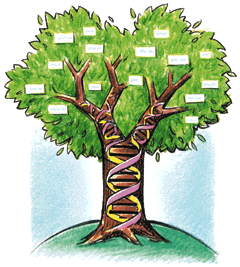Genealogy
The genealogy of the Batibo Palace and Fondon is intractably linked to that of the entire Widikum tribe in the North Western Region of Cameroon. It dates as far back as to the mid 17th century, when lovebirds Tembeka and Akumaka defected from a wave of Bantu migrants and settled in Tegheben, in a quarter called Tad in Batibo, located two miles South of the current Batibo palace.

Bantu migration patterns

Genealogy of the Batibo Fondom, & The origin of many Moghamo villages
Deriving from predominantly oral sources as well as from available historical records, the genealogy of Batibo is gradually being traced. Our research revealed some interesting eye-openers proffering much needed context and answers to some very curious questions about where we all emanated from. Here below in skeletal form is the genealogy of the Batibo Fondom. This write-up is a work in progress and is subject to revision as more research is being conducted and as more details become available:
I.Tembeka and Akumaka settled in Tegheben in about 1675. Their offspring include Tetu Njei, Njei-Tegha,Tewire,Tikum, Anofei, Damnuk, Njodang and Gwachere.
II.Njei-Tegha - Settled in Gowi and his offspring founded the villages of Mbunjei, Guzang, Bessi.
III.Njei-Tifuh moved from Gowi to the Former Palace adjacent the community hall .His offsprings founded the quarters of Gwotuh, Bechoh,Tichuhi and Kurozoh.
IV.Ndam Asso's children founded the following quarters Atam, Ekan, Kuruti, Kocheik a compound in Ewai Ewai quarter, and Kuronyie.
V.Ndam Amei little is known of him.
VI.Tenyang during whose reign, the movement from the old palace took place. Some of his children founded the Awienyang compound in Njinyen and others founded Kwadi.
VII.Tebo Mawum Tebo's children founded Njieteng another compound in Njinyen, Akurucham - a compound in Atangha. His reign saw the change of name from Aghwi to Batibo Coined by the Balis in reference to the home of Tebo in Mungaka Batebo.
VIII.Teke Kums children were many and founded the following quarters-Kujei, Akom,Wumobit, Baranim, wumofuh, wumoseh, Kotong, Ewai, Wumutek , wumobeng - a compound in Wumutek quarter. The appellation Teke kum means father of notables. All his children became notables - Mukums.
IX.Koh Kum's offspring settled at Mbebaghi. He was killed on a hunting expedition in Teko.
X.Fongang Aboh TETUH was a very powerful and famous - often referred to as Werewoghoaken meaning man with the big foot to avoid calling him by his name. He came to the throne a little before the arrival of the first White explorers. During his reign, the land tenure system was structured and land became more of an economic rather than merely a social asset. He died in about 1889.
XI.Acha Atog (1889-1920) reigned during the German era and the beginning of the French and British co-dominion in Cameroon. He witnessed the introduction of formal education and spearheaded the construction of the road linking Batibo and Widikum. He was particularly resentful of the Bali domination of the Widikum people and resisted being governed by the Balis. He was consequently forced into exile to Banyo by the Germans. His fighting spirit liberated the Moghamo people from Bali domination and he was widely respected and regarded by all the other leaders as the Clan Head of Moghamo people. He died in 1920.
XII.Mba -Atam Mba I (1920-1934) was a powerful, fierce, witty, sociable but quick tempered ruler. He was a great hunter and introduced the Tiwara dances into Moghamo. Appointed to the president of the Moghamo Native court in 1926 and he encouraged Christianity in Batibo Fondom. He died on 4th August 1934.
XIII.Mba II G .T.T. Mba II (1934-2005) as he preferred to be called was born 27th November 1922, ascended the throne at age 12 upon the death of his father. The trado-political structure of Batibo as it is today is the handiwork of Edut-achap as he was nicknamed after the hard nuts that come from the tree from which the fluoride-rich chewing stick is derived. HRH GTT Mba was the face of Batibo for almost three quarters of a century. He was also a politician holding elective office in both the West Cameroon House of Assembly as well as the Cameroon Parliament. His transition paved the way for a more contemporary face in the person of his son Tebo II.
XIV.HRH R.A.M. TEBO II a Law graduate of the University of Yaounde by training and businessman by profession ascended the throne upon the death of his father HRH G.T.T. Mba II amidst great political, cultural and economic anxiety in the Fondon. Even while his story is only being written, he is clearly destined to return Batibo to the rightful place of prominence. Batiboans have collectively responded to calls for modernization within the fondom starting with but not stopping at the Peoples Palace. His interest in self-reliance and development is infectious and the signs are there to show.
